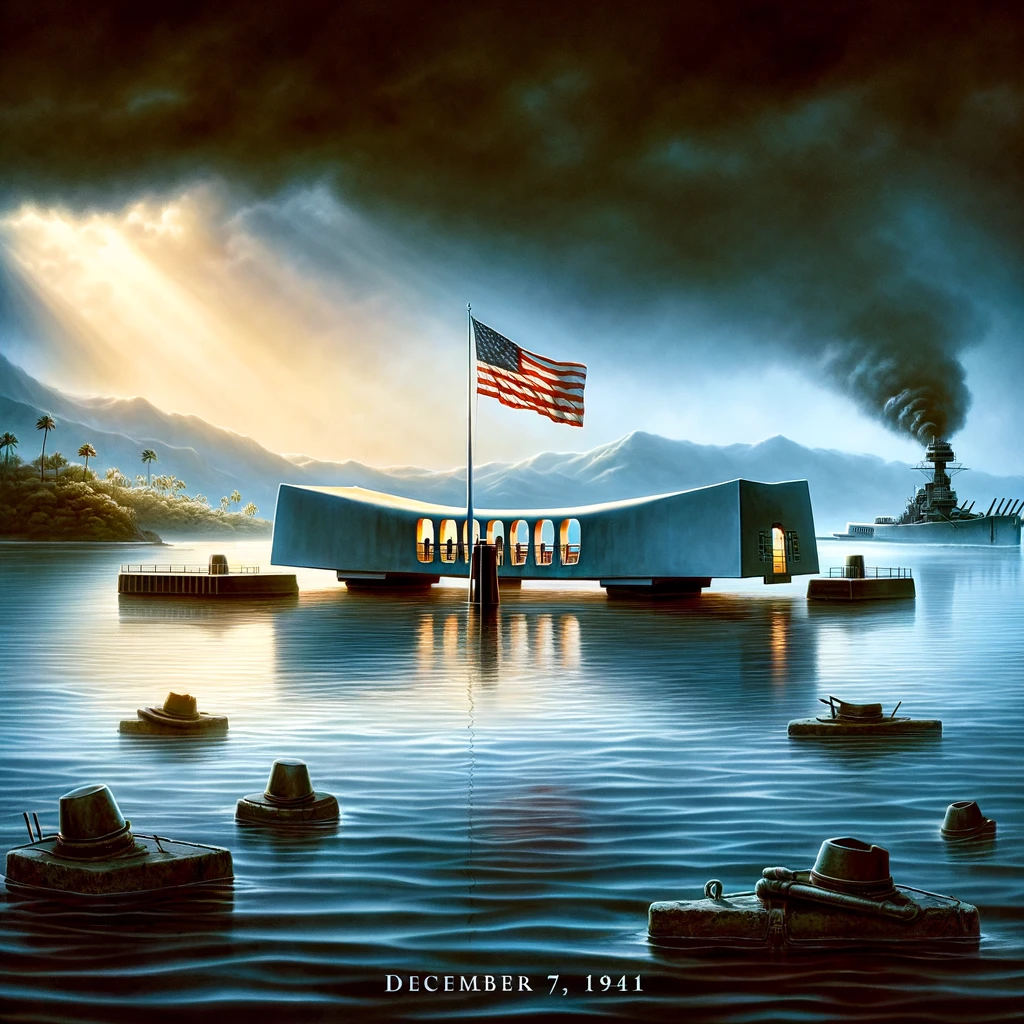Introduction
“Remember Pearl Harbor” has echoed through the decades as a potent mantra, encapsulating the American spirit of resilience, remembrance, and unity. Stemming from the unexpected and devastating attack by the Imperial Japanese Navy on the U.S. naval base at Pearl Harbor, Hawaii, on December 7, 1941, this phrase has become an indelible part of American history and identity.
The Attack on Pearl Harbor
On a tranquil Sunday morning, the skies over Pearl Harbor were shattered by the roar of Japanese aircraft. The surprise military strike aimed to incapacitate the U.S. Pacific Fleet, thereby preventing American interference with Japan’s military operations in Southeast Asia. The attack resulted in the loss of more than 2,400 American lives, numerous injured, and significant damage to the Pacific Fleet, including the sinking of battleships, cruisers, and destroyers.
The Immediate Aftermath
The attack on Pearl Harbor was a pivotal moment, leading to the United States’ formal entry into World War II. President Franklin D. Roosevelt addressed the nation, declaring December 7th as “a date which will live in infamy.” The speech galvanized the American people, uniting them in a common cause against the Axis powers. The rallying cry “Remember Pearl Harbor” became synonymous with American patriotism, determination, and the resolve to defend freedom and democracy.
The Legacy of Remembrance
“Remember Pearl Harbor” has transcended its immediate wartime context to become a timeless reminder of the costs of war and the valor of those who served. It has inspired countless tributes, memorials, and educational programs, ensuring that the lessons and legacies of that day are not forgotten. The USS Arizona Memorial at Pearl Harbor, visited by millions, stands as a somber reminder and a tribute to the lives lost.
Reflections on Unity and Resolve
The phrase “Remember Pearl Harbor” continues to resonate, reminding us of the resilience of the human spirit in the face of adversity. It underscores the importance of preparedness, vigilance, and the need to stand united in defending our values and way of life. It also serves as a call to honor the sacrifices of those who have served and continue to serve in the armed forces.
Conclusion
As we reflect on the historic significance of Pearl Harbor, “Remember Pearl Harbor” remains a powerful expression of national identity, collective memory, and a commitment to never forget the past. It encapsulates a moment in time that forever altered the course of history, shaping the world in which we live today. In remembering Pearl Harbor, we acknowledge the depth of human courage, the pain of loss, and the enduring strength of a nation united.
